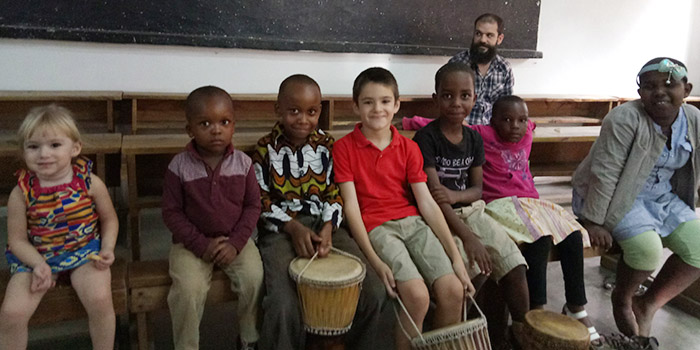When God called them, they answered, and followed His prompting to serve. Maria and Juan Pablo are a Spanish couple and members of the Neocatechumenal Way. For several years, they’ve been missionaries in Africa, specifically in Arusha, Tanzania. Today, the city has 416,000 inhabitants.
Maria explains how she recognized the call to go to another country to spread the Gospel:
“I felt,” she remembers, “that the Lord was calling me to keep nothing for myself, to give Him that little corner of my life that I had held on to, where I was afraid the Lord would enter. I felt in a strong way that God was calling me to surrender myself totally to him.”
Fear, then courage
Maria admits that initially she was afraid, and decided not to talk about it with her husband, Juan Pablo. Months passed before she decided to share her feelings on the subject with him.
That conversation started a process of discernment that the two of them shared. After a few months, during a Neocatechumenal meeting, Juan Pablo and Maria stood up to offer themselves as missionaries to go to whatever part of the world needed them. Thus began the wonderful love story of this Spanish couple with Tanzania.
Life in Tanzania
In the mornings, Maria and Juan Pablo’s children go to the school run by the Augustinian Missionary Sisters. They’ve already learned Swahili, adapted to the country’s educational methods, and made local friends. At their home, a local woman works as a nanny for the children so that the couple can go work at the parish in the afternoons.
On the occasion of the Extraordinary Missionary Month of October and World Mission Sunday (which was celebrated on October 18 this year), Juan Pablo has wanted to sent a clear message: “I would like to tell everyone how important it is that the Church be missionary.”
Read more:
Pope Francis: “Africa is Beautiful!” Urges Missionary Work
“The Holy Spirit always calls us out of our comfort zone to proclaim the Gospel,” he says. In order for the Church’s missionary work to be possible, he asks everyone to help, each to the extent that he or she can, “according to their own circumstances.” He emphasizes that “the important thing is to be united in prayer.”
Donations that bear material and spiritual fruit
Just this year, the Catholic Church has sent $56,000 to Arusha, where Juan Pablo and Maria live, so that the diocese can function and to provide support for local catechists, who go where the missionaries cannot reach. In addition, the funds help promote the diocese’s communications.
Juan Pablo and Maria do not charge for the work they do. The funds come from the donations made by millions of people from all over the world during the World Mission Sunday campaign, and are managed by the Pontifical Missionary Societies (PMS). In this way, over the last 16 years a total of $1,826,502 dollars have been sent to Tanzania, an average of more than $114,000 a year.
These funds have made it possible for the Catholic Church’s work in the country to grow. The number of parishes has gone from 17 to 39, and the number of schools has grown from 1 to 281. What’s more important is that the number of baptisms has gone from 1,926 to 46,500. Schools, parishes and baptisms are growing, and that’s good news for the whole Church.

Read more:
From India to Africa until he died in a pandemic: The heart of a missionary









